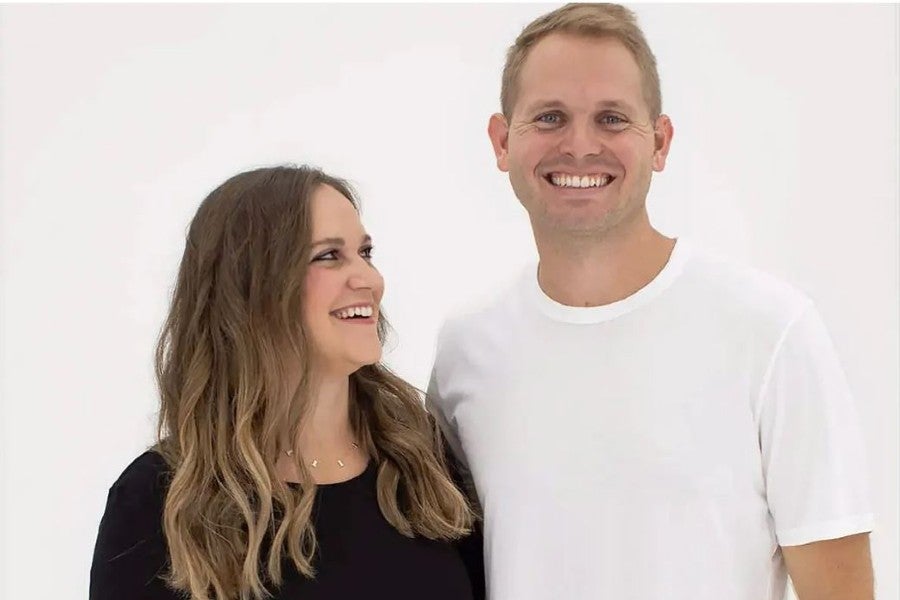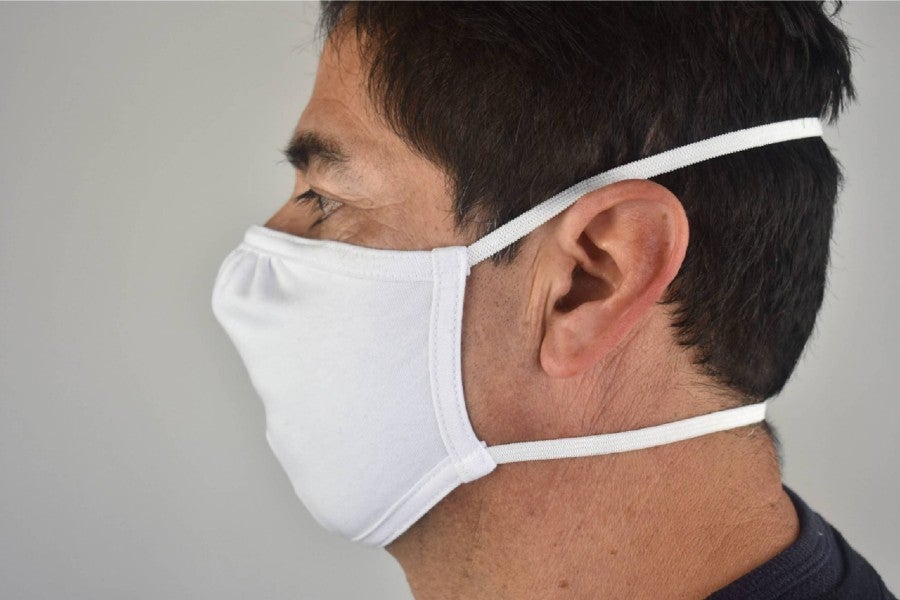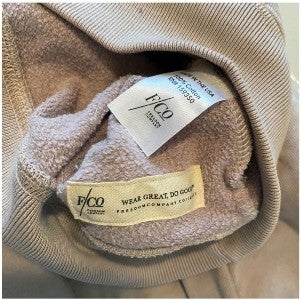MBA alumnus shifts business to manufacture and donate face masks
Freedom Company offers customers an opportunity to donate masks to the health facility of their choice
Janel Shoun-Smith | 615.966.7078 |

Adam Suttle, a Nashville entrepreneur and Lipscomb MBA graduate, with his wife Cari. Suttle has shifted his business from producing apparel to producing cotton face masks.
From its beginning, Adam Suttle's (’17) business, Freedom Company, was about doing good. It’s tagline even spells it out: Wear Great, Do Good™. So it’s no surprise that now when the world is in crisis, he has shifted his apparel company business to address the crucial need for face masks.
As an apparel company that works closely with American companies to make small-batch runs of premium cotton T-shirts, sweatshirts and hoodies, Freedom Company, based in Nashville, is well-positioned to begin making washable, non-medical cotton masks for the community.
When customers buy apparel from Freedom Company, a portion of the purchase directly supports nonprofits that are creating opportunities for life change and economic freedom around the world.
Using the same model, Suttles is empowering customers to do good themselves by purchasing the cotton masks and donating them either to health care workers in Tennessee or to deliver the masks themselves to the site of their choice.

Freedom Company masks are cotton, washable and can be purchased to donate to health care workers in non-COVID situations, in order to save N95 masks for treating COVID-19.
“We are trying to connect the dots for people,” said Suttle, who earned his MBA from Lipscomb before launching Freedom Company in August 2019. “We’ve got family and friends on the frontlines right now at Vanderbilt (Medical Center). And we know that N-95 masks are needed by those dealing directly with COVID. So we are donating these masks for health care workers in areas that do not need N-95 masks, to first responders or even to the homeless population. We took what we had and put it to work.”
Setting aside its apparel production for the moment, Freedom Company has made and donated 1,500 masks so far, working through the Community Resource Center, local churches—including The Belonging Co., where Suttle is on staff—and city officials, said Suttle. The white masks are non-medical, reusable and double-ply cotton made in the same American manufacturing facilities used to make the company’s apparel products.
“There are tons of people stuck in their homes right now and we want to give them the power to thank a health care worker. We were literally trying to help more people do good,” he said.

Every Freedom Company shirt should tell a positive story, Suttle said.
Suttle grew up in Sumner County, Tennessee, and spent much of his career in corporate sales. He moved back to Nashville with his family eight years ago. At that time, he knew he wanted to start a business, but wasn’t sure exactly what it would look like.
Completing his MBA at Lipscomb; meeting Rob Touchstone, director of the Center for Business As Mission at Lipscomb; and becoming familiar with Touchstone’s The Well, a social enterprise that supports clean water wells around the world, helped Suttle crystalize his business plan and maximize his leadership skills to make Freedom Company a reality, he said.
When customers purchase Freedom Company apparel, they are empowered to choose where to donate a portion of the sale: to provide clean water around the world through Project R12, job training in Uganda through Genesis Program or to fight human trafficking through Hope for Justice. Each item includes Freedom Company specialized labels, designed to remind the buyer of the positive impact they are having on the world.
In addition, Suttles hand-picked the organizations the company supports and personally traveled to their locations around the world to shoot videos for the company’s website, further drawing customers into a personal connection with the nonprofit. He also ensured that all the cotton vendors and clothing manufactures in his supply chain pay all their workers a living wage with benefits, he said.
Touchstone has remained a friend and consultant for Suttle, and he has been invited to speak in Lipscomb’s business classes as recently as this spring semester.